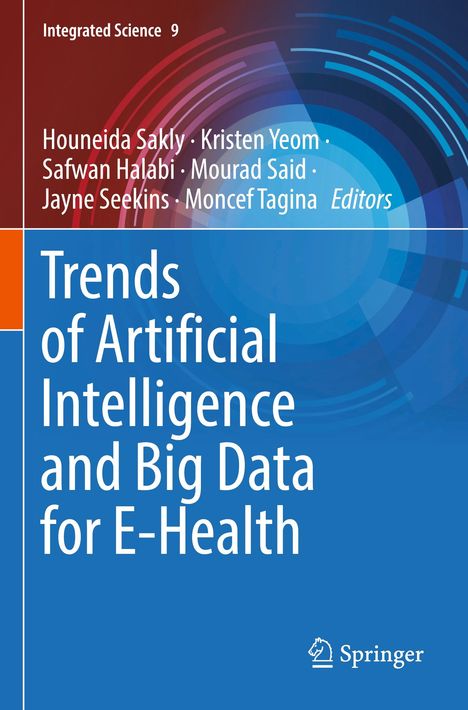Trends of Artificial Intelligence and Big Data for E-Health
Trends of Artificial Intelligence and Big Data for E-Health
Buch
- Herausgeber: Houneida Sakly, Kristen Yeom, Moncef Tagina, Mourad Said, Jayne Seekins, Safwan Halabi
lieferbar innerhalb 2-3 Wochen
(soweit verfügbar beim Lieferanten)
(soweit verfügbar beim Lieferanten)
EUR 106,66*
Verlängerter Rückgabezeitraum bis 31. Januar 2025
Alle zur Rückgabe berechtigten Produkte, die zwischen dem 1. bis 31. Dezember 2024 gekauft wurden, können bis zum 31. Januar 2025 zurückgegeben werden.
- Springer International Publishing, 01/2024
- Einband: Kartoniert / Broschiert, Paperback
- Sprache: Englisch
- ISBN-13: 9783031112010
- Bestellnummer: 11728696
- Umfang: 264 Seiten
- Nummer der Auflage: 24001
- Auflage: 1st ed. 2022
- Gewicht: 406 g
- Maße: 235 x 155 mm
- Stärke: 15 mm
- Erscheinungstermin: 4.1.2024
- Serie: Integrated Science - Band 9
Achtung: Artikel ist nicht in deutscher Sprache!
Weitere Ausgaben von Trends of Artificial Intelligence and Big Data for E-Health
Klappentext
This book aims to present the impact of Artificial Intelligence (AI) and Big Data in healthcare for medical decision making and data analysis in myriad fields including Radiology, Radiomics, Radiogenomics, Oncology, Pharmacology, COVID-19 prognosis, Cardiac imaging, Neuroradiology, Psychiatry and others. This will include topics such as Artificial Intelligence of Thing (AIOT), Explainable Artificial Intelligence (XAI), Distributed learning, Blockchain of Internet of Things (BIOT), Cybersecurity, and Internet of (Medical) Things (IoTs).Healthcare providers will learn how to leverage Big Data analytics and AI as methodology for accurate analysis based on their clinical data repositories and clinical decision support. The capacity to recognize patterns and transform large amounts of data into usable information for precision medicine assists healthcare professionals in achieving these objectives.
Intelligent Health has the potential to monitor patients at risk with underlying conditions and track their progress during therapy. Some of the greatest challenges in using these technologies are based on legal and ethical concerns of using medical data and adequately representing and servicing disparate patient populations. One major potential benefit of this technology is to make health systems more sustainable and standardized. Privacy and data security, establishing protocols, appropriate governance, and improving technologies will be among the crucial priorities for Digital Transformation in Healthcare.


